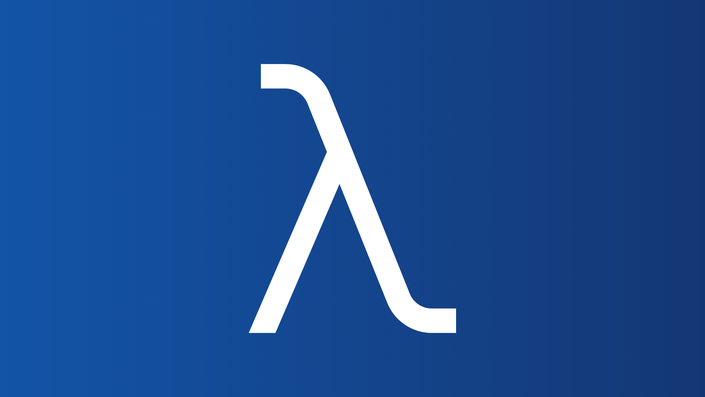
Functional Programming & Java Streams
Focus on building code that matters with Declarative Programming. Less Code Do More
Hey Amigos 🙋🏽♂️
Are you looking to learn the latest techniques in Java functional programming? Look no further! Our comprehensive programming course covers everything you need to know, from the basics of functional programming and lambdas, to advanced topics like the Java functional interface package and java streams.
Java is a programming language that is designed to be object-oriented, which means that it uses a model of data and behavior that is organized around objects and their interactions. However, Java also supports functional programming, which is a programming paradigm that is based on the concept of functions. In functional programming, functions are first-class citizens, which means that they can be treated just like any other data type in the language. This allows for a more declarative style of programming, where the focus is on what needs to be done, rather than how it should be done.
In this course you will learn about:
- • What is Java Functional Programming
- • Pure Functions
- • Lambdas
- • Java Functional Interfaces: Function, Suppliers, Consummers Predicates
- • Java Combinator Pattern
- • Imperative vs Declarative
- • Java Streams API: Map, Filter, Reduce, Flatmap, Min, Max
- • Parallel streams
- • How Streams Work
- • Lots of Exercises
Key Features
| INTERMEDIATE TO ADVANCED | |
|---|---|
| LIFETIME COURSE ACCESS | |
| ACCESS TO ALL UPDATES | |
| OVER 77 LESSONS | |
| 5+ HOURS OF VIDEO MATERIAL | |
| AMIGOSCODE TEXTBOOK | |
| SUBTITLES | |
| COURSE CERTIFICATE | |
| 30-DAYS REFUND GUARANTEE | |
| EXERCISES AND SOLUTIONS | |
| DEDICATED DISCORD GROUP |
5 Hours Course 🚀
Who is the course for?
Intermediate/Senior Java Developers
The course is for anyone looking to deepen their knowledge of Functional programming and its application in real-world scenarios. This comprehensive course doesn't just focus on learning syntax but also explores the special features that Java has to offer, such as lambda expressions, method references, and map operations.
Functional programming is useful to increase the performance, scalability, robustness, and maintainability of any Java application. It can be used to solve various problems such as developing multiple threads or handling remote communication with Java's Stream API
Whether you're a beginner developer or a professional looking to improve your coding skills, this course will show you the big picture of functional programming and give you the techniques to implement it in your code.
Community Testimonials
Get started now!
Why learn Java Functional Programming?
Java is a programming language that is designed to be object-oriented, which means that it uses a model of data and behaviour that is organized around objects and their interactions.
However, Java also supports functional programming, which is a programming paradigm that is based on the concept of functions. In functional programming, functions are first-class citizens, which means that they can be treated just like any other data type in the language.
This allows for a more declarative style of programming, where the focus is on what needs to be done, rather than how it should be done.
5 reasons why you should learn functional programming:
1. Improved code reliability and predictability. In functional programming, functions are pure and don't have side effects, which makes it easier to reason about and predict the behavior of your code. This can lead to fewer bugs and more reliable software.
2. Enhanced modularity and reusability. In functional programming, functions are first-class citizens, which means they can be treated like any other type of data. This makes it easier to write modular, reusable code that can be composed and combined in different ways.
3. Better support for concurrent and parallel programming. In functional programming, there are no shared mutable state or side effects, which makes it easier to write concurrent and parallel code that can take advantage of multiple cores or processors. This can improve the performance and scalability of your applications.
4. Increased productivity and efficiency. Because functional programming encourages a declarative and expressive coding style, it can make it easier and faster to write code that solves complex problems. This can lead to increased productivity and efficiency for developers.
5. Many companies are starting to develop projects based on functional programming. This rumped-up demand creates some amazing job opportunities that are reflected in developer’s salaries, as seen in the graph below:


I discovered Amigoscode tutorials while trying to understand streams in Java8, Nelson's friendly approach helped me to understand the concept. As a fresh graduate, I wanted to thank you for sharing your knowledge with me and please keep up the good work.
- Sorin, Java Developer from Romania Linkedin
Get started now!
Amigoscode Certificates
In addition to all the knowledge, skills and practical experience, at the end of the course, you will be able to prove your efforts with a certificate issued by Amigoscode!
Join thousands of others on Linkedin who proudly display their achievements:

A 30-Day ‘Try-It’ Money Back Guarantee
No Risk!
If you're on the fence about enrolling in the Java Master Class Course,
maybe you've had a bad experience with other training programs or
similar courses in the past.
That's why I want to reassure you that with
our
30-Day Money-back Guarantee, you have nothing to lose by trying out
this course.
And just remember, if you do decide to take advantage of our policy, make sure you haven't completed more than 10% of the course so that you're eligible for the refund. I've put this in place to make sure the refund policy is fair for everyone and to give you enough time to try out the course.
And if you want a first-hand account of Amigoscode's courses, go ahead and ask the 55,000 community of coders on our Facebook and Discord pages. There will be someone with similar circumstances to yours who will gladly answer all your questions.
Your Instructor

Frequently Asked Questions
Get started now!

